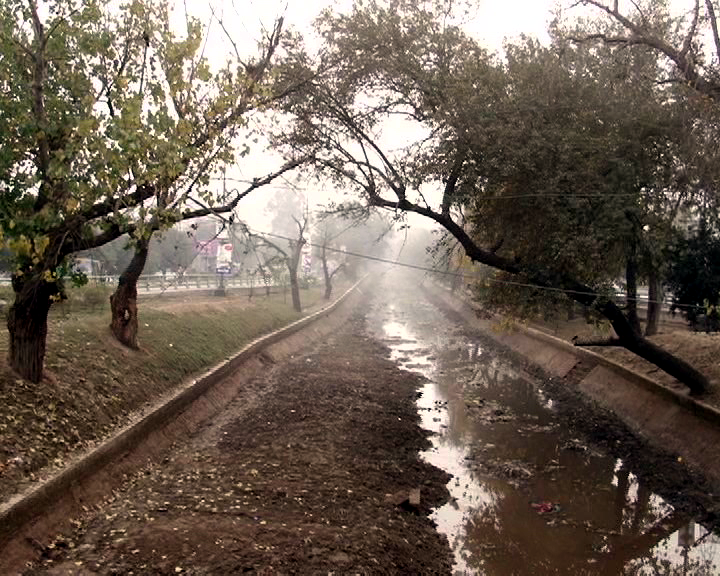
Lahore: Birds are leaving Lahore, once known as the City of gardens, as they find no attraction in the old tress while the newly grown trees are being axed for development projects, various environmentalists observed.
Lahore is the second largest city of Pakistan and also stands as the most polluted city after Karachi. The environmentalists hold official approach towards trees responsible for the decrease in the birds’ number during last one and a half decade.
“Many trees are too old to give us any benefit,” Dr. Munawar Sabir, a senior botanist told News Lens Pakistan. “Lahore Canal, Minto Park, Lawrence Garden, Race Course Park and several other gardens have hundreds of old trees that are really disturbing not only the atmosphere but are also a reason for the decreasing water level,” he added.
Syed Muhammad Abubakar, a director at World Wildlife Fund (WWF), told News Lens Pakistan, “Older trees have no attraction for birds. Birds don’t choose them to make their nests.” He said that insects, the main source of birds’ food, also avoid to live at old trees. “Water ingestion of aged trees becomes double as they get older and their branches are reduced to thirty to forty percent.”
With the passage of time, the capacity of trees to store carbon by absorbing Carbon Dioxide from the atmosphere decreases. Therefore, their ability to contribute towards ecosystem reduces (carbon storage of a plant varies from species to species).
“Trees not just maintain the fertility of the soil by preventing soil erosion but also help recharge groundwater as their large roots, vastly spread, beneath the soil absorb rain water and contribute to the aquifer, thus, help maintain groundwater level,” Dr. Ejaz Ahmed, the Senior Director, WWF Pakistan said while talking to News Lens Pakistan.
If new trees are planted to replace the old ones or for the sake of developmental work, indigenous trees should be planted more in numbers, as the technology to plant imported trees is expensive, say the experts.
Sabir is of the opinion, “If we want to attract birds in the city, another option is to plant fast growing indigenous trees; however, the better choice is to plant the same species so that ecosystem (plant and animal life in the area) does not get disturbed.” He said that the government must avoid replacement of indigenous trees with invasive species as they are aliens for local soil. The invasive species are not only dangerous for local birds and insects but also for other plants.
Mesquite, known as vilayati keekar in Urdu, is an example of invasive species which releases harmful chemicals that have extreme negative impacts on the growth and survival of other plants.
Ahmad says, “Most importantly indigenous trees support flora and fauna of the area. Planting exotic species can be disastrous as it can harm the insects and if insects become extinct, the birds feeding on those insects will automatically perish. It means that the entire ecosystem will get affected and the impact will directly reach out to humans,”
He said, that Paper Mulberry is one example which was brought to Islamabad from South East Asia, 30 years ago, for increasing the green cover of Islamabad. It proved invasive as it dominated other species of plants and also proved to be the main source of pollen allergy among the Islamabad residents, he added.
Recently, Government has worked out a plan with help of botanists for the replacement of the older trees, Mian Shakeel Ahmed, Director General Parks and Horticulture told News Lens Pakistan. “Our department is working on the better replacement and hopefully it will be done soon.”
Environmentalists and botanists believe that it is time for better management of resources to protect endangered ecosystem. It has been proved that widening green belts and increasing plantation has a lot of benefits for humans, birds, animals and insects, said Abubakar.



